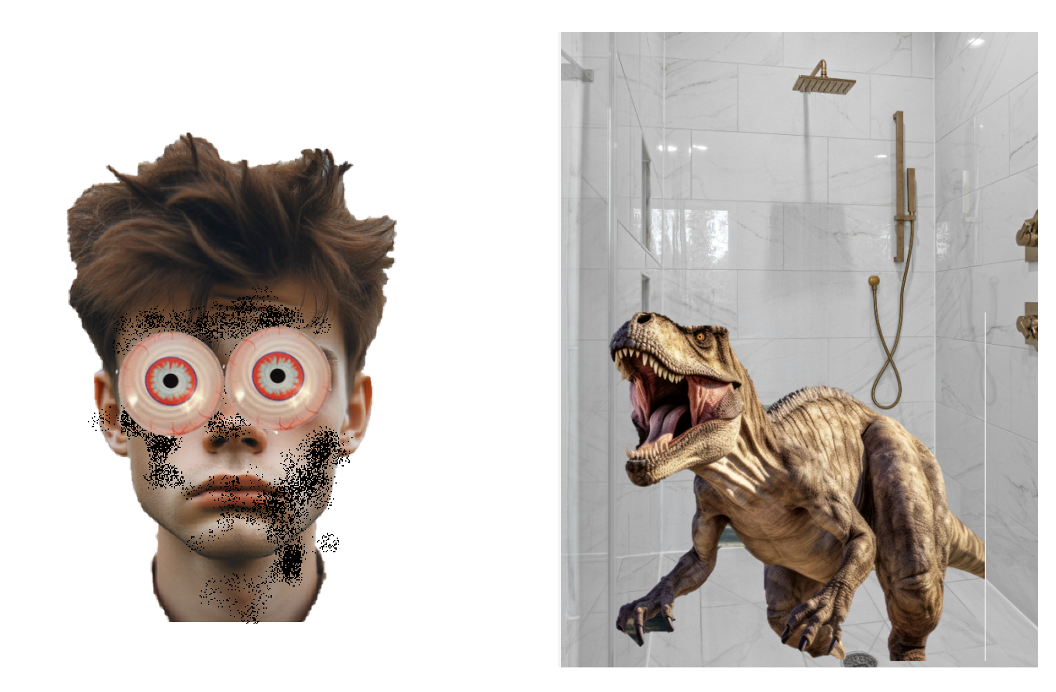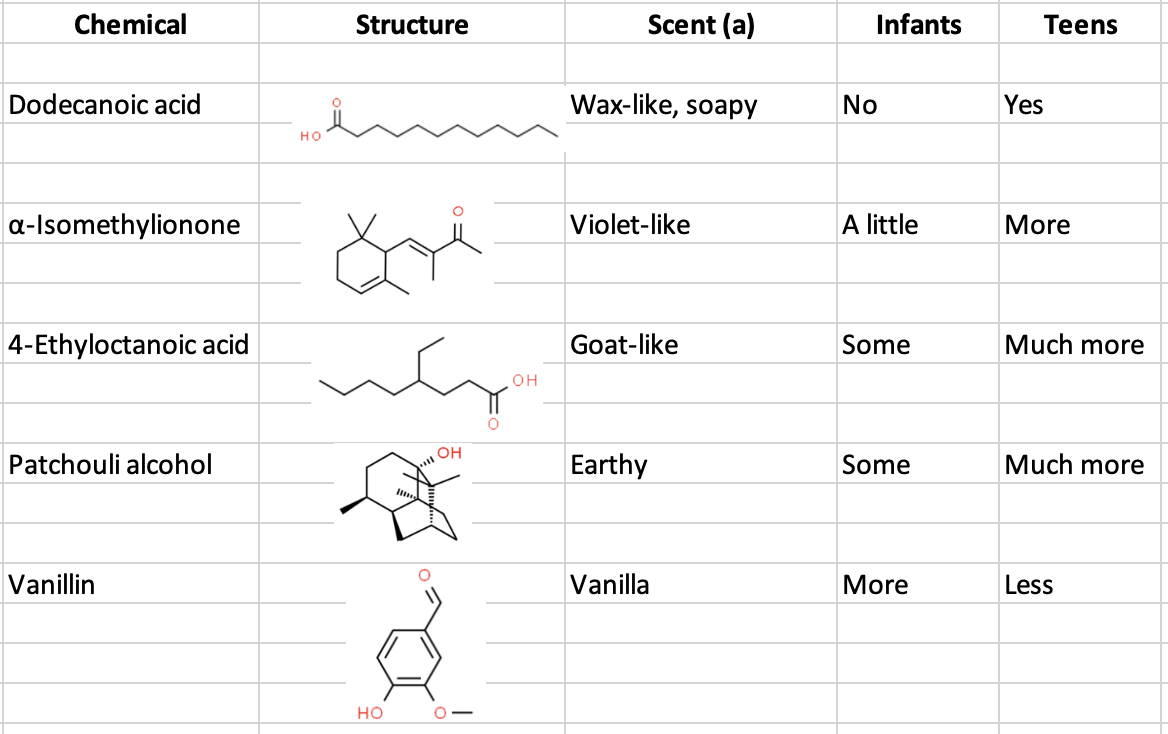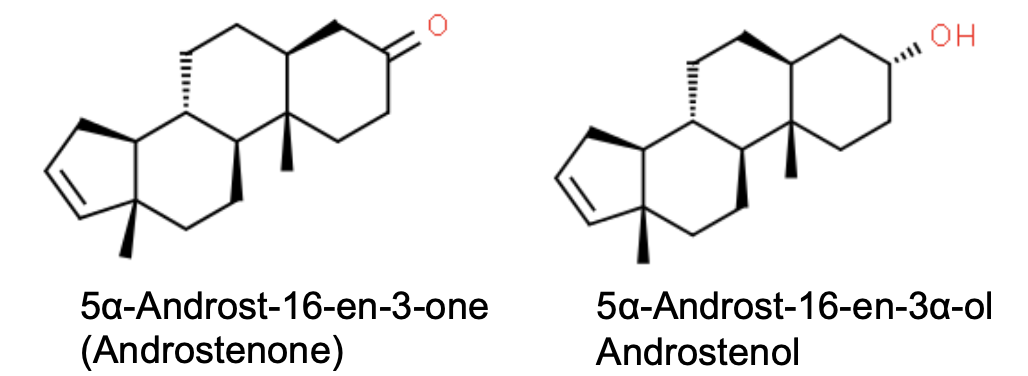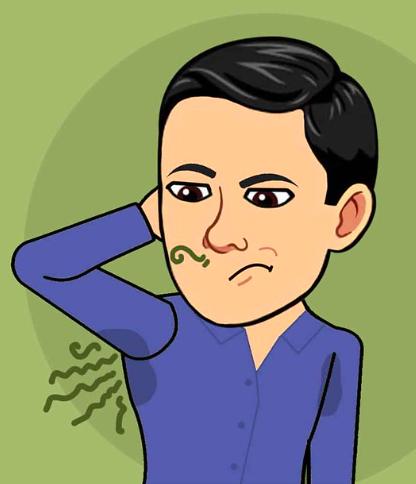A recent study tells us something that need not be told: Teenagers don't smell so good. And the authors take it one step further; babies smell better than teens. Not to belabor the obvious, but so do maggot-infested goat heads – something you should thoroughly enjoy while reading this during a meal.
The essence (sorry) of the study is that teens, because of changing hormones, emit certain chemicals that are reminiscent of all kinds of things. We'll get to that in a moment.
Teens are slobs
It should come as no surprise that when it comes to hygiene teens are often unconcerned. Getting them to shower can be a hassle. Google teens "don't shower enough" and you'll see plenty of hits that look like this...

Why? Who knows. Perhaps they have a different view of the world.

Jared fears the shower for reasons only he can explain. He also doesn't think he needs one. Jared is wrong. Images: Raw pixel, Pexels, Easy peasy AI
But there's more to it: Hormones
It's hardly surprising that teens are basically a bucket of hormones with two legs, but not all hormones are equal. In fact, teens' bodies manufacture some that you've probably never heard of. Since you probably haven't read a recent article titled "Body odor samples from infants and post-pubertal children differ in their volatile profiles" in the journal Communications Chemistry, I'll try to explain what's going on without stinking up the place.
A brief (and dumb) intermission for no particular reason
The article was written by (I s### you not) Helene M. Loos, who is the Chair of Aroma and Smell Research at the Friedrich Alexander University in Germany. (With no disrespect to Dr. Loos, if you're studying odors for a living that's not such a great name. But it can always be worse. Many years ago there was a plumber in my community named Al Doody. No, I'm NOT kidding and I can back this up).
Time for a smelly chemistry lesson
I won't go into the details of how the stinky samples were collected or analyzed but there are sections of the paper with the following subtitles: BO donors, BO sampling procedure, and Cotton test fabric for sampling BO. Feel free to sample these on your own time.
A total of 42 smelly chemicals were detected in teens (ages 14-18), 31 of which could be identified. No way I'm going through all of them, but some teen-stinky chemicals are especially interesting because of the sheer variety of scents and what some of them are. The researchers also sampled odors from infants (ages 0-3) for comparison. The results are quite interesting. I will only discuss odor chemicals which had a significant difference between infants and teens. Table 1 shows five:

Table 1. Volatile compounds with a significant difference in scent between teens and infants.
What to make of this?
- Dodecanoic acid was not detected in infants but was in teens. Its smell was described as "soap-like" and also "waxy." I'm not sure what to make of this. Teens may smell like wax but soap? I doubt it.
- Alpha-Isomethylionone smells like violets. Counterintuitive? Teens reek of this but babies don't. One would think it would be the other way around. One would be wrong.
- 4-Ethyloctanoic acid smalls like a goat. Teens gave off a fair amount of it, infants, less so. Perhaps there's some kind of hidden message here.
- Patchouli alcohol also makes sense but in a twisted way. Although the authors list it as "earthy" Carvansons, a British fragrance company, describes it as "an earthy, spicy but also slightly sweet aroma. In its raw essential oil form, it can be very strong..." This made it ideal for "stoners," who used it to mask the smell of weed, back when one had to do so. Don't you find it a little strange that teens also excrete it?
- Vanillin is the natural (and artificial) flavor of (duh) vanilla. The fact that infants have a nice vanilla-esque scent is inherently logical in an evolutionary sense.
Hold your nose on a trip to Puberty City
The study's most interesting finding is that with the onset of puberty, teens biosynthesize two hormones, each with its characteristic scent (1). Teens (not infants) produce 5α-androst-16-en-3-one (sweaty, urinal, musk-like) and 5α-androst-16-en-3α-ol (sandalwood-like, musk-like). This explains a lot.

What's going on? Nature has very few accidents, so if these changes are taking place there's probably a reason. The authors speculate: [emphasis mine]
[S]hortly after birth, infants learn to recognize their mother´s individual odor and parents are able to identify their own infant’s BO, which is preferred over the smell of other infants. BOs of infants are pleasant and rewarding to mothers and, as such, probably facilitate parental affection. In contrast, BOs of pubertal children are rated as less pleasant and parents are unable to identify their own child during this developmental stage. Some studies even show a parental aversion towards the BO of their opposite sex pubertal children, which may serve to prevent inbreeding.
Fascinating. It is not accidental that babies smell good and teens don't. These changes in odor facilitate parental bonding with infants while at the same time making teens repulsive, presumably to get the kid to leave home (as if), perhaps so that brothers and sisters (or worse) don't mate. Score one for nature.
Humans are little more than sophisticated (maybe) animals. Scent-based behavior is seen throughout the animal kingdom to govern a myriad of behaviors intended to perpetuate the species. So, if your teens smell like pee cut them a break. But a shower won't hurt either.
NOTES:
(1) Very low concentrations of both 5α-androst-16-en-3-one and 5α-androst-16-en-3α-ol were detected, but this is to be expected. Because of their high molecular weight, neither compound is volatile, especially compared to the five examples in Table 1.




